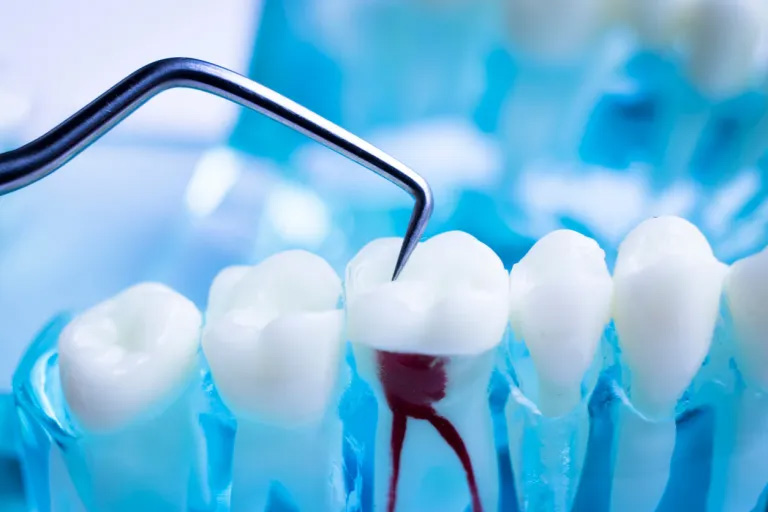Existing Patients
(770) 475-3600
New Patients
(770) 526-9210

A root canal may be necessary when a deep cavity reaches the pulp causing it to become infected. The dentist will remove the tooth’s infected pulp and flush the cavity of any contaminates. After cleaning out the infection, the canal will be filled to prevent any further infection. Usually, a crown is recommended to cover and restore the tooth’s shape and function after a root canal. Endo-treated teeth are usually more brittle and that is why a crown or full coverage is recommended.
Although the thought of a root canal can be quite scary for a patient, there is no need to worry. Millions of root canals and subsequently millions of teeth are treated and saved this way every year. Modern root canals are like routine fillings. Local anesthesia makes the process painless, and patients are back on their feet in no time with a much healthier mouth.
A root canal can usually be completed in one or two office visits. Root canals can be performed by a general dentist or an Endodontist (root canal specialist). An Endodontist is a specialist focusing on the causes, diagnosis, prevention, and treatment of diseases and injuries in the dental pulp or the nerve of the tooth. We are fortunate to have Dr. Austin, who has experience in endodontics and professional relationships with area Endodontic specialists. She has experience with premolars and anterior teeth, but she will assess your case and refer you as needed.
Your tooth may be sensitive for a few days post-procedure. This is completely normal and can usually be treated with over-the-counter medications such as ibuprofen (Advil, Motrin) or naproxen (Aleve). Most patients can resume normal activities the following day.
*Credit to Karina Morazzi Photography
Invisalign®, the Invisalign logo, and iTero®, among others, are trademarks and/ or service marks of Align Technology, Inc. or one of its subsidiaries or affiliated companies and may be registered in the U.S. and/or other countries.